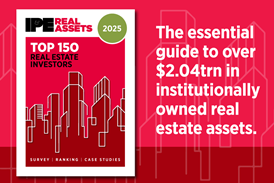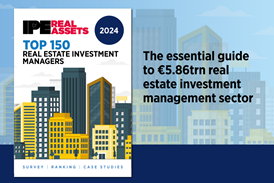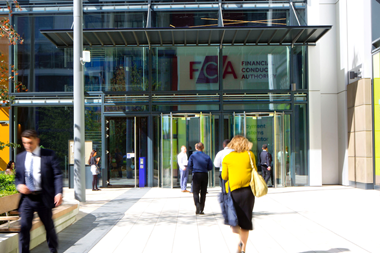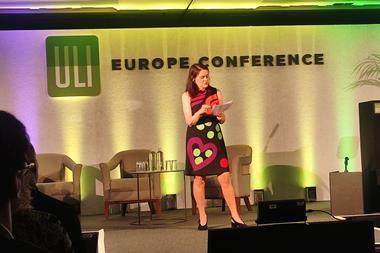The Financial Conduct Authority (FCA) has announced it is moving ahead with a new sustainability disclosure and labelling regime for the UK, which could help fund managers marketing sustainable real estate funds.
The regulatory authority confirmed today that is putting in place a new regime of Sustainability Disclosure Requirements, which will effectively act as the UK’s equivalent of the EU’s Sustainable Finance Disclose Regulation (SFDR).
The FCA is moving ahead with the three product labels it proposed last year, but it has added a fourth designed for funds that invest in a mixture of assets that could be applicable to more than one label.
The inclusion of “sustainability improvers”, “sustainability impact” and the new “sustainability mixed goals” are likely to be welcomed by real estate fund managers that are looking to market strategies that improve the environmental performance over time or seek to make a positive social impact.
According to the FCA’s policy statement, to disclose under the sustainability improver label, a fund must have “an aim to invest at least 70% in assets that have the potential to improve environmental and/or social sustainability over time, and that are determined by their potential to meet the robust, evidence-based standard of sustainability”.
Fund managers must also “identify the period of time in which the product and/or its assets are expected to meet the standard, including short and medium-term targets for improvements”.
The “sustainability impact” label is also expected to be applicable to real estate funds looking to make positive social impact. The FCA’s policy statement gives an example of a hypothetical fund that “aims to provide capital and income growth through investing in and owning socially positive real estate assets”.
The hypothetical fund would own residential units and let them to organisations that support occupants classified as homeless to progress into self-sufficient living, with the rent financed by local housing authorities.
To be eligible for the mixed-goals label, a fund must have the objective to invest at least 70% in accordance with a combination of the sustainability objectives for the other labels.
The policy statement also suggests that long-term asset funds (LTAFs) that invest in a range of real assets could be eligible for the sustainability focus label.
LTAFs were introduced to help facilitate more defined-contribution pension capital into illiquid assets, and the SDR policy statement gives an example of a hypothetical LTAF that “aims to achieve capital growth over the long term and a positive environmental impact by investing in climate themes that contribute towards the mitigation of climate change and adaptation of society to negative impacts of climate change”.
The policy statement says: “This may include renewable energy infrastructure, forestry assets, climate insurance provision and resilient real estate.”
Objectives for the four SDR product labels
- Sustainability focus: To invest in assets that are environmentally or social sustainable, determined by a robust, evidence-based standard of sustainability
- Sustainability improvers: To invest in assets that have the potential to become more sustainable over time, determined by their potential to meet a robust, evidence-based standard of sustainability over time
- Sustainability impact: To achieve a predefined positive, measurable environmental and/or social impact
- Sustainability mixed goals: To invest in assets that meet or have the potential to meet a robust, evidence-based standard for sustainability, and/or invest with an aim to achieve positive impact
Paul Richards, managing director of the Association of Real Estate Funds (AREF), said: “This is extremely welcome news. Real estate funds of almost every hue are at the forefront of responding to climate change and taking sustainable opportunities.
“It’s to be hoped this new package of measures will go a long way to reassuring investors – from individual savers to large institutions – that they can play their part through their investments.”
Lonneke Löwik, CEO of the European real estate investor association INREV, said: “We’ve been encouraging the FCA to develop labels that better accommodate real estate transition strategies.
“We believe labels that support transition strategies are important and can help direct investment to decarbonising the built environment.”
Melville Rodrigues, real assets head of advisory at Apex Group, said: “The SDR policy statement is a very welcomed positive for our real estate sector, and a reflection of the constructive engagement between our sector and the FCA officials during the SDR consultation process.
“The FCA is helpfully running with the four labels that real estate fund managers and their investors can each embrace, including for attracting institutional capital with net-zero transition strategies, pressing emission reduction and other ESG goals.”
Rodrigues said it was “terrific that – based on examples that I proposed to the FCA – the FCA has expressly endorsed” the concepts of “a sustainability focused LTAF” and a social impact real estate fund that would be eligible for the sustainability impact label.
“The example [given by the FCA] usefully refers to a fund focused on ‘achieving positive social impact relating to the fight against homelessness’,” he said.
Rodrigues said the policy statement was also timely, because the EU was currently consulting on reforms to SFDR up until December 15, including its various disclosure labels.
“Post-Brexit EU regulators can learn from learn from UK regulators – and vice versa,” he said. Rodrigues suggested that respondents to the SFDR consultation could “advocate FCA SDR labelling solutions that may be useful with the SFDR reforms”.
He said: “The overall aim should be to achieve international coherence between the UK’s SDR with other regimes including the EU’s SFDR.”
To read the latest 91��ý���� magazine click here.






















